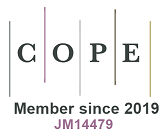
 https://orcid.org/0000-0001-9430-8476
https://orcid.org/0000-0001-9430-8476
 https://orcid.org/0000-0003-3745-2548
https://orcid.org/0000-0003-3745-2548
 https://orcid.org/0000-0001-9526-4823
https://orcid.org/0000-0001-9526-4823
Volume 87 of the quarterly “Acta Universitatis Lodziensis. Folia Sociologica” appears in the year of the 50th anniversary of the scientific work of Professor Paweł Starosta at the University of Lodz. Wanting to emphasize the Starosta’s contribution to the social sciences and to celebrate the jubilee, we have prepared a volume entitled “Sociology of Paweł Starosta – inspirations”.
The invitation to participate in this project, was addressed to the interdisciplinary and international scientific community. We are pleased to have received a response from the Jubilarian’s colleagues, alumni and friends, who in this way also wanted to express their tribute or gratitude to him.
The vast majority of the articles we publish in the volume are embedded in the field of rural and urban sociology research, which Paweł Starosta himself successfully conducted. They show the transformations of urban and rural local systems that are (both positive and negative) effects of the transformation and globalization processes experienced in Poland and other former communist countries. Starosta not only acted as a researcher, but also as an eyewitness to these processes. The layout of the publication is therefore not accidental. It reflects the multifaceted nature of the issues addressed and Professor Paweł Starosta’s willingness to take on complex topics that require interdisciplinary and international cooperation.[1]
It was also our intention, as editors, to provide an opportunity for the exchange of views and experiences, as well as to inspire further creative explorations in problem areas related to Professor Starosta’s scholarly legacy, such as:
The article by Wojciech Knieć and Elwira Piszczek refers to Paweł Starosta’s consideration of social capital. It turns out to be highly useful for explaining the peculiarities of “civic rurality” in Poland, the advantages and disadvantages of leadership social capital, the scarcity of network linkages of the rural non-governmental sector, and the clash between the high level of a sense of empowerment and disillusionment with the unfavorable situation of social activity in local communities.
In the article by Agnieszka Murawska and Małgorzata Marks-Krzyszkowska, we find an overview of Paweł Starosta’s research output focused on the issue of civic participation in local communities in Poland and abroad. These analyses show the phenomenon of involvement in public affairs over several decades, covering the period of the political transformation, as well as just before it. They confirm the relatively low level of citizen interest in public affairs.
Wielisława Warzywoda-Kruszyńska and Kamil Kruszyński presented the social aspects of the systemic transformation in Poland, focusing on the difficult situation of Lodz inhabitants, especially children. The authors stressed that Lodz – unlike other cities – was forced to look for solutions on its own. This is because it did not receive an adequate support program from the central government. The traumatic experience of deindustrialization contributed to the city’s contemporary demographic and economic problems.
Agnieszka Michalska-Żyła, on the other hand, in her article, refers to the concept of urban revival potential presented in Paweł Starosta’s book “The Social Potential of the Revival Post-Industrial Cities”. Attention, however, is focused not so much on potentials as on the mechanisms that trigger them, and centers around the idea of the 15-minute city. The assumption is made that the way the space is organized reflects the processes taking place in all spheres of city functioning, including those leading to its transformation.
Tomasz Dorożyński and Janusz Świerkocki, inspired by Paweł Starosta’s regional research perspective, attempted to study the performance of special economic zones (SEZs) by province over 25 years and their role in reducing regional economic disparities. The research proved that SEZs did not contribute to reducing regional disparities measured by GDP per capita, and may even, in the authors’ view, have increased them.
Jakub Ryszard Stempień, presenting his own theoretical view (called the social disintegration theory), refers to the Professor’s interest in sociological theory, which he also exercised in the field of academic didactics. Stempień’s theoretical proposal grows out of the tradition of the positivist paradigm in sociology, close to Paweł Starosta, also taking into account the dimension of global society.
Imre Kovach – in his essay – presented the situation of Hungarian rural society resulting from transformations occurring as a consequence of three main processes: the decline of the rural peasantry, the dismantling of the socialist system, and globalization as well as European integration. In the perspective of the transformation of local communities, the author refers to the work of Paweł Starosta, who proposes to use the concept of social bonds to study the organization of post-socialist local societies.
We sincerely encourage you to study the collected articles, to re-read the Professor’s works, and to reflect on the contemporary context of the issues discussed.

